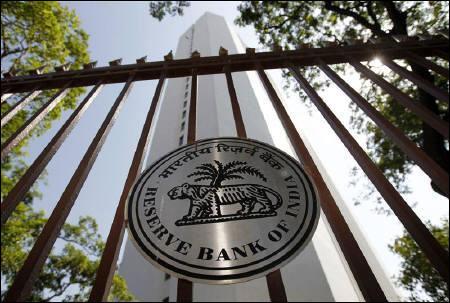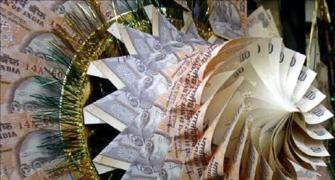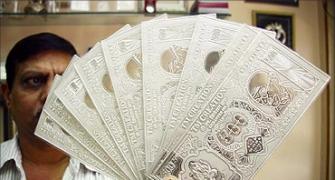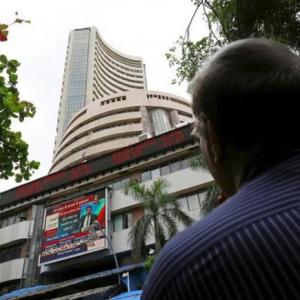A rate cut will bring positive sentiment around the Budget. A rate hike will be a shocker, explains Devangshu Datta.
 The Reserve Bank of India (RBI) will have interesting decisions to take at its policy review this week.
The Reserve Bank of India (RBI) will have interesting decisions to take at its policy review this week.
For one thing, it must take note of actions and advisories by other central banks.
The US Federal Reserve raised the dollar policy rate, the so-called Fed funds rates in December and the Federal Open Markets Committee reiterated a balanced forecast last week, implying that the Fed might raise, or hold rates.
The Bank of Japan has taken the extreme step of adopting a negative policy interest rate to induce more lending.
'Everyone' expects the European Central Bank (ECB) to be more accommodative at its next policy meet.
The People's Bank of China has already adopted very accommodative policies and the yuan, which is traded in daily pre-set bands, has been allowed to travel lower.
Apart from this, there is inflation. If we go by RBI's preferred benchmark of the Consumer Price Index (CPI), retail inflation was rolling up at 5.61 per cent year-on-year in December.
That's within the upper-end of the six per cent target set by RBI for January 2016.
Food inflation is trending higher and that has been the primary driver pushing up CPI.
The CPI, and the Wholesale Price Index (WPI) have trended higher for the four months ended December 2015 (WPI still remains in the negative territory, but deflation was not so pronounced).
Crude prices have dipped again since mid-December. If the government passes on some of the crude price declines, instead of increasing excise rates, lower retail fuel prices might help counter higher food inflation to some extent.
Where banks are concerned, credit demand has been very low through 2015-16.
Lower interest rates would create more demand for credit. But, banks have not even passed on the bulk of the 125 basis points of cuts RBI had made in calendar year 2015.
Companies have sought alternative funding at lower rates, by issuing unsecured commercial paper or secured bonds.
Banks seem to be content to let firms find cheaper alternate funding. This is because banks, especially public sector banks (PSBs), have very stressed balance sheets with high levels of gross non-performing assets. The PSBs don't want to lend more. RBI itself has also been increasingly vocal about the bad loans.
Apart from this, currency movements are a shifting landscape.
The dollar has gotten stronger against every major currency. But, the rupee has lost more ground than the yen and euro.
Since December 1, the rupee is down 2.2 per cent against the dollar, but it is down 4.8 per cent and 6.1 per cent versus the euro and the yen, respectively.
The rupee has strengthened 2.9 per cent and one per cent versus the sterling and yuan since December 1.
Where does RBI want the rupee to trade in forex markets? A weaker rupee makes some sense in that it might stimulate exports (and tourism) and retard imports.
A weaker rupee will, however, make it more expensive for RBI to redeem, or close out $30 billion worth of swaps, which are due in the October-December 2016 quarter.
A weaker rupee will also hurt companies that have borrowed in forex.
RBI must have a take on where government policy will take the economy.
If the government tightens up and cuts the fiscal deficit, the central bank might be emboldened to loosen up.
If the government forgets about fiscal prudence and does some pump-priming, RBI might stay tight.
While it is possible the central bank already knows what the government intends to do in the 2016-17 Budget, it won't act upon that knowledge before the Budget is formally announced.
My best guess is that RBI will wait until the Budget, and perhaps, until the ECB announces policy in March.
By then, it will have more macroeconomic data and additional information about government policy and action by other central banks. So, it will be able to make a more informed decision.
Even if one is right about the likely timing of the next tweak in monetary policy, it will be hard to guess what direction RBI will lean.
What weight does it place on all the variables it must consider? What else does it consider important? Those questions have no clear answers.
Even if RBI does nothing in this policy review, the governor's speech will be dissected for every nuance as to possible future stances.
A surprise rate cut would not necessarily push the market up. But, it could add to positive sentiment building up around the Budget. A hike would be a shocker.










